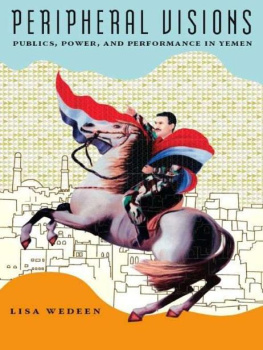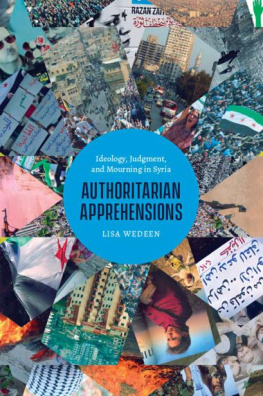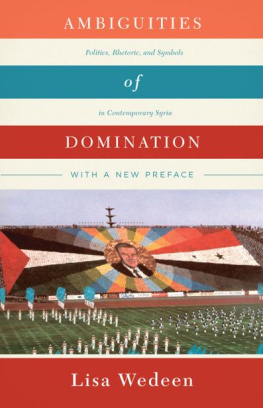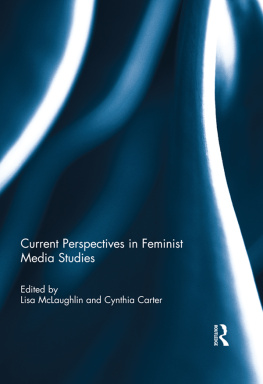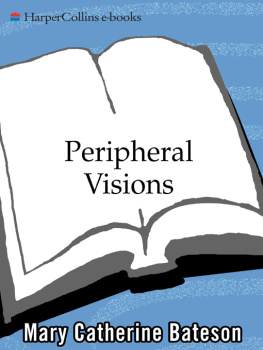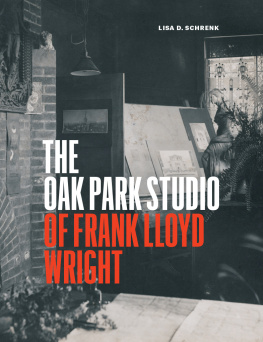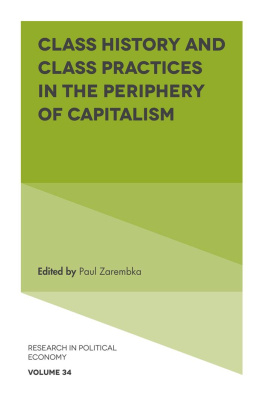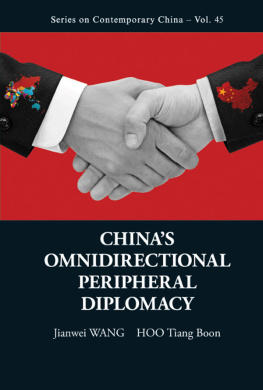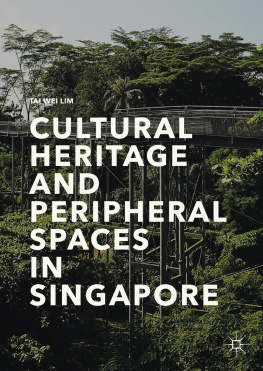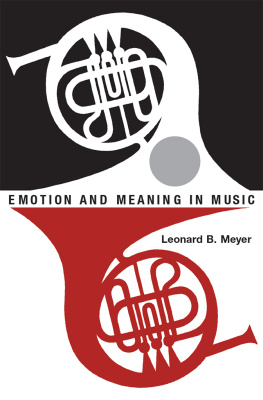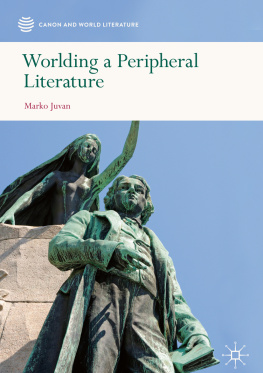Table of Contents
CHICAGO STUDIES IN PRACTICES OF MEANING
A series edited by Jean Comaroff, Andreas Glaeser, William Sewell, and Lisa Wedeen
ALSO IN THE SERIES:
Inclusion: The Politics of Difference in Medical Research
BY STEVEN EPSTEIN
Producing India: From Colonial Economy to National Space
BY MANU GOSWAMI
Bengal in Global Concept History: Culturalism in the Age of Capital
BY ANDREW SARTORI
Parit!: Sexual Equality and the Crisis of French Universalism
BY JOAN WALLACH SCOTT
Logics of History: Social Theory and Social Transformation
BY WILLIAM H. SEWELL, JR.
Bewitching Development: Witchcraft and the Reinvention of Development in Neoliberal Kenya
BY JAMES HOWARD SMITH
The Devils Handwriting: Precoloniality and the German Colonial State in Qingdao, Samoa, and Southwest Africa
BY GEORGE STEINMETZ
LISA WEDEEN is professor of political science at the University of Chicago and author of Ambiguities of Domination: Politics, Rhetoric, and Symbols in Contemporary Syria .
The University of Chicago Press, Chicago 60637 The University of Chicago Press, Ltd., London
2008 by The University of Chicago All rights reserved. Published 2008
Printed in the United States of America 17 16 15 14 13 12 11 10 09 08 1 2 3 4 5
ISBN-13: 978-0-226-87790-7 (cloth) ISBN-13: 978-0-226-87791-4 (paper) ISBN-10: 0-226-87790-6 (cloth) ISBN-10: 0-226-87791-4 (paper)
Library of Congress Cataloging-in-Publication Data Wedeen, Lisa.
Peripheral visions : publics, power, and performance in Yemen / Lisa Wedeen. p. cm.(Chicago studies in practices of meaning)
Includes bibliographical references and index.
ISBN-13: 978-0-226-87790-7 (cloth : alk. paper)
ISBN-13: 978-0-226-87791-4 (pbk. : alk. paper)
ISBN-10: 0-226-87790-6 (cloth : alk. paper)
ISBN-10: 0-226-87791-4 (pbk. : alk. paper) 1. Yemen (Republic)Politics and government. 2. Political participationYemen (Republic) 3. NationalismYemen. I. Title.
JQ1842.A58w43 2008
320.9533dc22
2008005222

The paper used in this publication meets the minimum requirements of the American National Standard for Information SciencesPermanence of Paper for Printed Library Materials, ANSI Z39.48-1992.
If I have exhausted the justifications I have reached bedrock, and my spade is turned. Then I am inclined to say: This is simply what I do.
Ludwig Wittgenstein,
Philosophical Investigations , par. 217.
ACKNOWLEDGMENTS
How do I begin to thank those who have contributed to this project? In Yemen, I am grateful to so many people for their kindness. In particular, special thanks are owed to Al Sayf asan, Muh.ammad Qah.n, Dr. Muh.ammad Abd al-Malik al-Mutawakkil, Qabl al-Mutawakkil, and Dr. Inilq al-Mutawakkil, the late Jr Allh Umar and his family, Mujhid al-Quhl, Nabl al-f, and Muaf Numn for their extraordinary hospitality and intellectual generosity. I am also grateful to Muh.ammad Ghlib, Muh.ammad al-Mikhlf, Wahbiyya abr, Muh.ammad Saqqf, the al-Madwah family, the Ish.q family, staff at al-Ayym newspaper, the villagers of Kuhhal and the townspeople of Shibm in the aramawt for their thoughtfulness. Special acknowledgment also goes to Abd al-akm al-Sada, Consul of Yemen in Detroit for his assistance over the years. I also thank all those unnamed members of the Yemeni Socialist Party, al-Ilh., and the General Peoples Congress who helped me during my fieldwork, as well as to the various poets I encountered through the Center for Yemeni Studies under the directorship of Dr. Abd al-Azz al-Maqlih.. I remain indebted to everyone who gave time and energy to this project.
At the University of Chicago, I have been fortunate to find an intellectual community that is inspirational and tough-minded. I am grateful to my colleagues at 3CT (Chicago Center for Contemporary Theory). Jean and John Comaroff read the manuscript from beginning to end and provided me with superb suggestions in the margins of every page. They also took care of me in South Africa, at a time when I was badly in need of a break, and for their friendship and movie-going proclivities, I remain truly thankful. William H. Sewell, Jr., read countless drafts of particular chapters and tried to teach me to write the historical chapter like a historian, an endeavor at which I fear I was only partially successful. He also read the entire manuscript and offered me overall recommendations that were truly transformative. Dipesh Chakrabarty listened to so many versions of chapter 3 that Im not sure he or I will ever be the same again. At 3CT, I would also like to thank Andreas Glaeser, Patchen Markell, and Danilyn Rutherford for their comments during our sessions on my book. Thanks are also owed to the late Iris Marion Young, to Carles Boix, Robert Gooding-Williams, John McCormick, and Dan Slater for helpful suggestions that pushed the book along. For their friendship and intellectual companionship, I am particularly indebted to Jennifer Cole and Rochona Majumdar, both of whom read drafts of specific chapters and encouraged me to exercise my body as well as my mind. Jennifer Coles scholarly advice and elegant editorial suggestions for the introduction, conclusion, and chapter 5 were enormously useful. Michael Dawson has been a true friend and exceptional interlocutor throughout this process. I am particularly grateful for his insightful comments on multiple (and I mean multiple ) drafts of all chapters. This book could not have been written without his patience and unstinting dedication to our friendship and to the book. My colleagues in the Department of Political Science more generally deserve acknowledgment for their faith in the project and for their helpful interventions during workshop events. Conversations in the Comparative Politics workshop and in the interdisciplinary Political Communications workshop were especially productive, and thanks are due to Susan Gal and Michael Silverstein for their contributions to the latter.
At the Institute for Advanced Study, I thank Joan Scott, whose hospitality and intellectual acuity helped make our seminar sessions worthwhile. Rosalind C. Morriss readings of my work during the 2006-7 year challenged me in unexpected and pleasurable ways, and she has become a friend and an inspiration in the process. I was not able to incorporate all of her suggestions or entertain all of her invitations for elaboration, but I do not stop thinking of how they might enhance whatever I do next. Susan Lehman made her apartment in New York available to me every week while I was in Princeton. She is my BFF, my gal pal for life. And I thank her children too, Zack, Annie, and Max, for giving up their usual sleeping arrangements to accommodate me so often. I am particularly lucky to have another best friend in Nadia Abu El-Haj, whose friendship and astute readings of my work I have treasured over the years. She too made commuting from Chicago to the East Coast as delightful as such an ordeal can be. And I am grateful to Nadias immediate family, Amer Bisat and Aya, for welcoming me into their household on many occasions. For their constancy, even when my own has wavered, I thank my friends Gaston Alonso Donate and Betsy Andrews. For his indefatigable decency, wit, and common sense, I am forever indebted to Al Ravitz.
This project has benefited from terrific research assistants. Thanks are owed to Adria Lawrence, Sevag Kechichian, Aram Shahin, and Rohit Goel for their tireless efforts at various stages of this project. They have tracked down articles, checked citations, and read drafts of chapters. Thanks especially to Aram Shahin for his meticulous handling of transliterations and for his erudition on issues Islamic. And especial appreciation is due to Rohit Goel, whose creative readings of countless drafts improved the text immeasurably. I remain grateful to both Rohit and Aram for their assistance in preparing the final manuscript, and to Anita Chari, Jessica Greenberg, Loren Goldman, Todd Hall, Kabir Tambar, and Joo Gonalves for their substantive comments. Students, not all of whom are mentioned here, are also acknowledged in endnotes for particular contributions they have made to the work. I also register my gratitude to my own teachers, particularly to the late Michael Rogin, whose originality and imagination continue to inspire my own efforts, and to Hanna Pitkin, who remains my intellectual muse. I am also fortunate to have had extraordinary guidance from scholars knowledgeable about and appreciative of Yemen. Thanks to Renaud Detalle, Engseng Ho, Jillian Schwedler, Shelagh Weir, John Willis, and Anna Wrth for their help and suggestions, and especially to Sheila Carapico, who read every word of the book at one point in its metamorphosis and provided incisive comments and enduring emotional support. I am also grateful to Paul Dresch, who responded to queries via email with dispatch and uncommon erudition, and to Selma Al-Radi, who provided companionship and encouraged distractions from politics during our overlapping stays in Yemen. This book was also assigned to two exceptional reviewers, both of whom revealed their identities to me during the course of my significant revisions. Both Brinkley Messick and Steven C. Caton did what one hopes for in reviewsoffer honest, critical, perceptive assessments designed to make the manuscript as insightful, polished, and true as it can be.

 The paper used in this publication meets the minimum requirements of the American National Standard for Information SciencesPermanence of Paper for Printed Library Materials, ANSI Z39.48-1992.
The paper used in this publication meets the minimum requirements of the American National Standard for Information SciencesPermanence of Paper for Printed Library Materials, ANSI Z39.48-1992.
